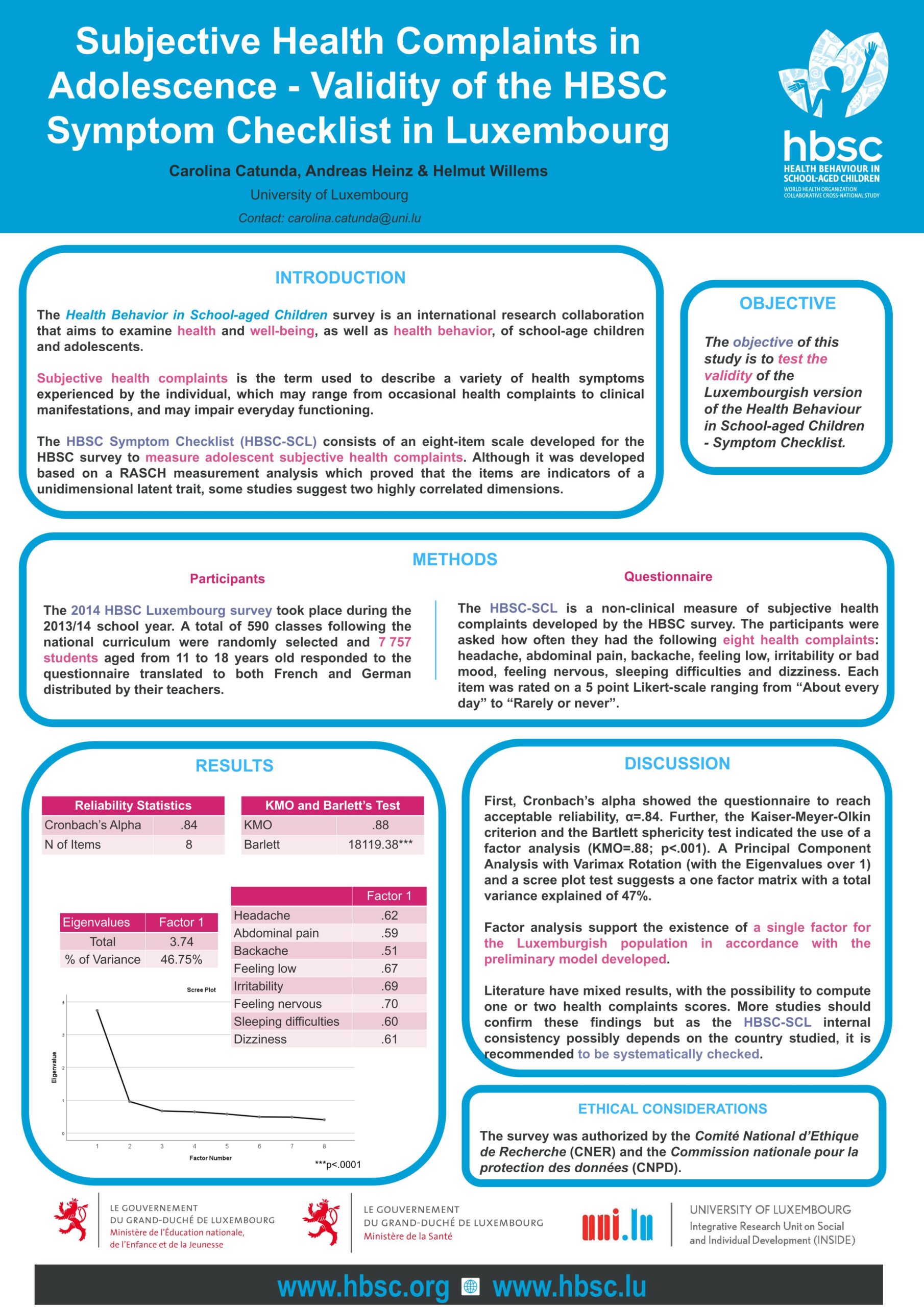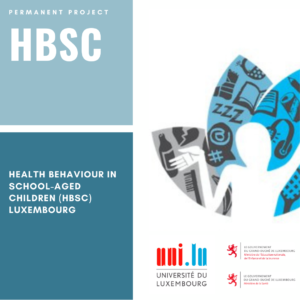The HBSC Symptom Checklist (HBSC-SCL) consists on an eight-item scale developed for the Health Behaviour in School-aged Children survey to measure adolescent health complaints. Although it was developed based on a RASCH measurement analysis which proved that the items are indicators of a unidimensional latent trait, some studies suggests a two highly correlated dimensions. The objective of this study is to test the validity of the Luxembourgish version of the HBSC-SCL. Methods: The 2014 HBSC Luxembourg survey took place during the 2013/14 school year. A total of 590 classes following the national curriculum were randomly selected and 7 757 students aged from 11 to 18 years old responded to the questionnaire translated to both French and German distributed by their teachers. Findings: First, the Kaiser-Meyer-Olkin criterion and the Bartlett sphericity test indicated the use of a factor analysis (KMO=.88; p<.001). A Principal Component Analysis with Varimax Rotation (with the Eigenvalues over 1) and a scree plot test suggests a one factor matrix with a total variance explained of 47%. Discussion: Factor analysis support the existence of a single factor for the Luxemburgish population in accordance with the preliminary model developed. Literature have mixed results, with the possibility to compute one or two health complaints scores. More studies should confirm these findings but as the internal consistency possibly depends on the country studied, it is recommended this be systematically checked.
Subjective health complaints in adolescence – Validity of the HBSC symptom checklist in Luxembourg
Zitiervorschlag
Catunda, C., Heinz, A. & Willems, H. (2018). Subjective health complaints in adolescence – Validity of the HBSC symptom checklist in Luxembourg. Research poster. European Health Psychology Society, & National University of Ireland. 32nd Annual Conference of the European Health Psychology Society, Galway.



